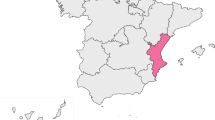Abstract
The present study is devoted to the analysis of problems and priorities for the development of organic agriculture in Russia. The purpose of the work is to propose recommendations for ensuring the sustainability of the development of organic agriculture at the macro level of the economy. Using FiBL data, we demonstrate the growing demand for organic products in developed countries and the availability of resources for the production of organic products in some developing countries. Taking into account existing trends, we determine the competitive advantages of Russia in the world market of organic agriculture. The authors present a model of the organic products production as well as priority areas for supporting organic agriculture. More precisely, we propose to take into account (1) creating communities of producers; (2) recognition of community interests by authorities; (3) a state stimulating policy; (4) regulation of relations between organic and traditional agriculture; and (5) elaboration of the market for organic products. As the result, we suggest to make the managed transition to organic agriculture by distributing the functions in the production of organic products between the state, agro-industrial holdings and farmers.
Access this chapter
Tax calculation will be finalised at checkout
Purchases are for personal use only
Similar content being viewed by others
References
FiBL. Data on organic agriculture in the world, Research Institute of Organic Agric. https://statistics.fibl.org/. Accessed 11 Jan 2022
Global vision and strategy for organic farming research. https://tipi.ifoam.bio/. Accessed 11 Jan 2022
The Organic Trade Association. https://ota.com/. Accessed 11 Jan 2022
National Organic Union. https://rosorganic.ru/. Accessed 11 Jan 2022. (in Russian)
Union of Organic Farming. https://soz.bio/. Accessed 11 Jan 2022. (in Russian)
Badgley, C., Moghtader, J., Quintero, E., Zakem, E., Chappell, M., Avilés-Vázquez, K., Samulon, A., Perfecto, I.: Organic agriculture and the global food supply. Renewable Agric. Food Syst. 22(2), 86–108 (2007)
Deverre, C., Lamine, C.: Alternative agrifood systems. A review of English-language works in the social sciences. Rural Econ. 317(3), 57–73 (2010)
Galkin, D.: Development of regions of agro-industrial specialization in the post-industrial economy: new approaches to food production. Bull. Chelyabinsk State Univ. 10(406), 94–101 (2017). (in Russ.)
Schulze, E., Pakhomova, N., Nesterenko, N., Krylova, Y., Richter, K.: Traditional and organic agriculture: analysis of comparative efficiency from the standpoint of the concept of sustainable development. Bull. St. Petersburg State Univ. Ser. 5: Econ. 4, 4–39 (2015). (in Russ.)
Górska-Warsewicz, H., Żakowska-Biemans, S., Stangierska, D., Świątkowska, M., Bobola, A., Szlachciuk, J., Czeczotko, M., Krajewski, K., Świstak, E.: Factors limiting the development of the organic food sector—perspective of processors, distributors, and retailers. Agriculture 11(9), 882 (2021)
Larsson, M., Morin, L., Hahn, T., Sandahl, J.: Institutional barriers to organic farming in Central and Eastern European countries of the Baltic Sea region. Agric. Econ. 1, 5 (2013)
Galkin, D.: Fundamentals of innovative development management of organic food production. IOP Conf. Ser. Earth Environ. Sci. 677, 022010 (2021)
Galkin, D., Pospelova, I.: Organic food production: search for territories and types of organizations. IOP Conf. Ser. Earth Environ. Sci. 677, 022035 (2021)
Crowder, D.W., Reganold, J.P.: Financial competitiveness of organic agriculture on a global scale. Proc. Natl. Acad. Sci. U.S.A. 112, 7611–7616 (2015)
Farkov, A.: Potential of exurbanization in Russia: possibility and priorities. IOP Conf. Ser. Earth Environ. Sci. 341, 012015 (2019)
de Lima Medeiros, M., Passador, C.S., Passador, J.L.: Implications of geographical indications: a comprehensive review of papers listed in CAPES’ journal database. INMR—Innov. Manage. Rev. 13(4), 315–329 (2017)
Galkin, D.: Geographical indications as a tool for the development of organic food production. Bull. St. Petersburg State Univ. Econ. 6(126), 55–60 (2020)
Slade, P., Michler, J.D., Josephson, A.: Foreign geographical indications, consumer preferences, and the domestic market for cheese. Appl. Econ. Perspect. Policy 41(3), 370–390 (2019)
Deconinck, K., Huysmans, M., Swinnen, J.: The political economy of geographical indications. LICOS Discussion Paper (2014)
Niggli, U.: Sustainability of organic food production: challenges and innovations. Proc. Nutr. Soc. 74(1), 83–88 (2015)
Padel, S., Lampkin, N.: The development of governmental support for organic farming in Europe. In: Organic Farming: An International History (2008)
Howard, P.H.: Organic Processing Industry Structure. https://philhoward.net/2020/. Accessed 11 Jan 2022
Acknowledgements
The research is completed within the framework of the RFBR research project No. 19-510-44011 “Development of the concept of organic agriculture based on progressive methods and technologies”.
Author information
Authors and Affiliations
Corresponding author
Editor information
Editors and Affiliations
Rights and permissions
Copyright information
© 2023 The Author(s), under exclusive license to Springer Nature Singapore Pte Ltd.
About this paper
Cite this paper
Galkin, D. (2023). Towards the Managed Transition to Organic Agriculture: Searching for a Strategic Model. In: Ronzhin, A., Kostyaev, A. (eds) Agriculture Digitalization and Organic Production . Smart Innovation, Systems and Technologies, vol 331. Springer, Singapore. https://doi.org/10.1007/978-981-19-7780-0_5
Download citation
DOI: https://doi.org/10.1007/978-981-19-7780-0_5
Published:
Publisher Name: Springer, Singapore
Print ISBN: 978-981-19-7779-4
Online ISBN: 978-981-19-7780-0
eBook Packages: Intelligent Technologies and RoboticsIntelligent Technologies and Robotics (R0)




